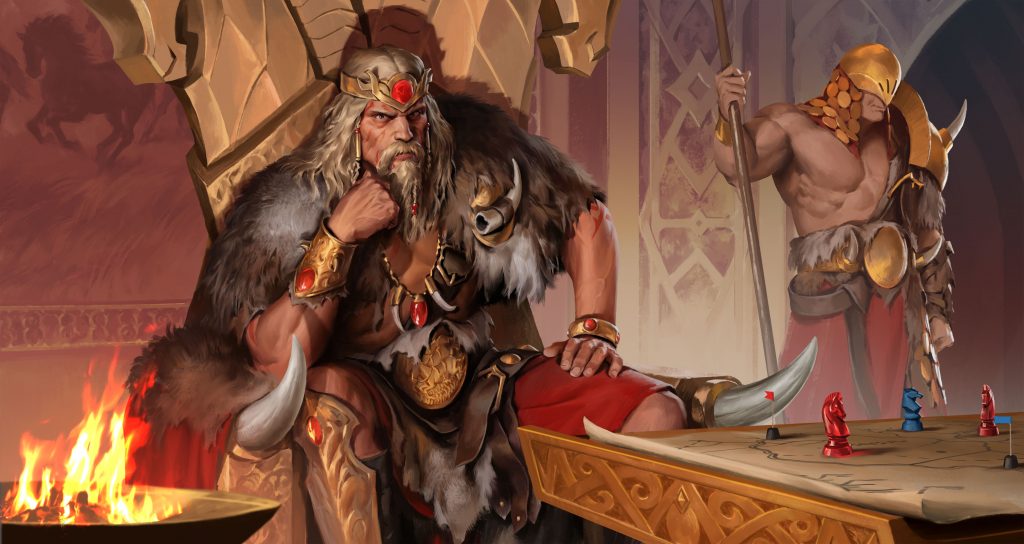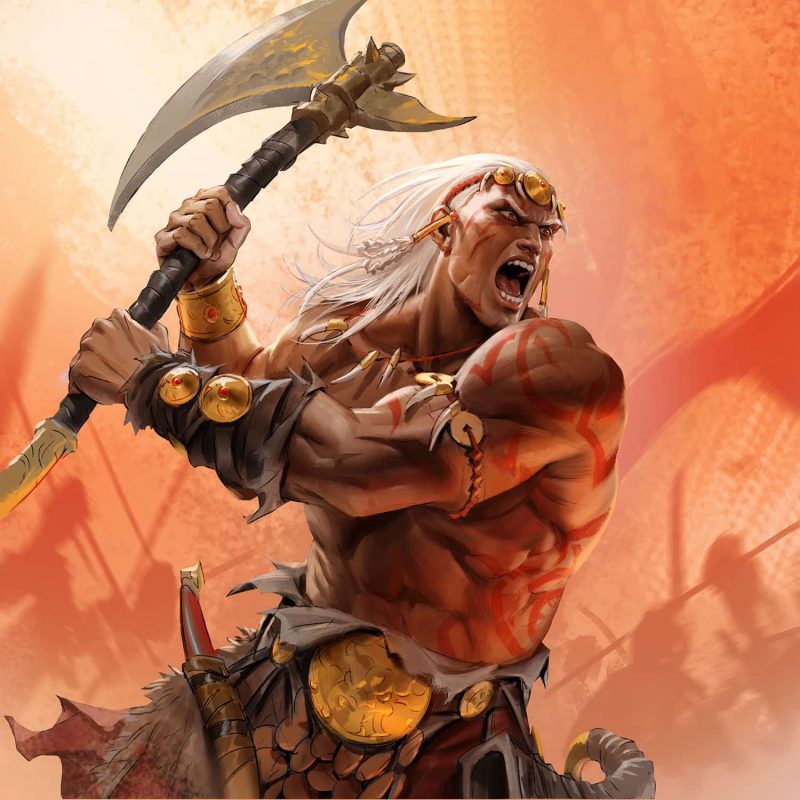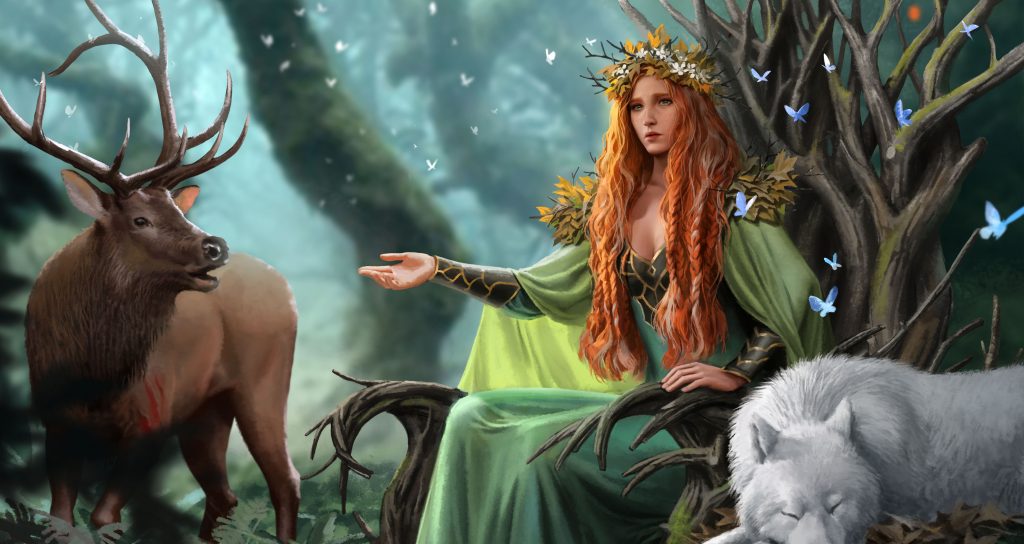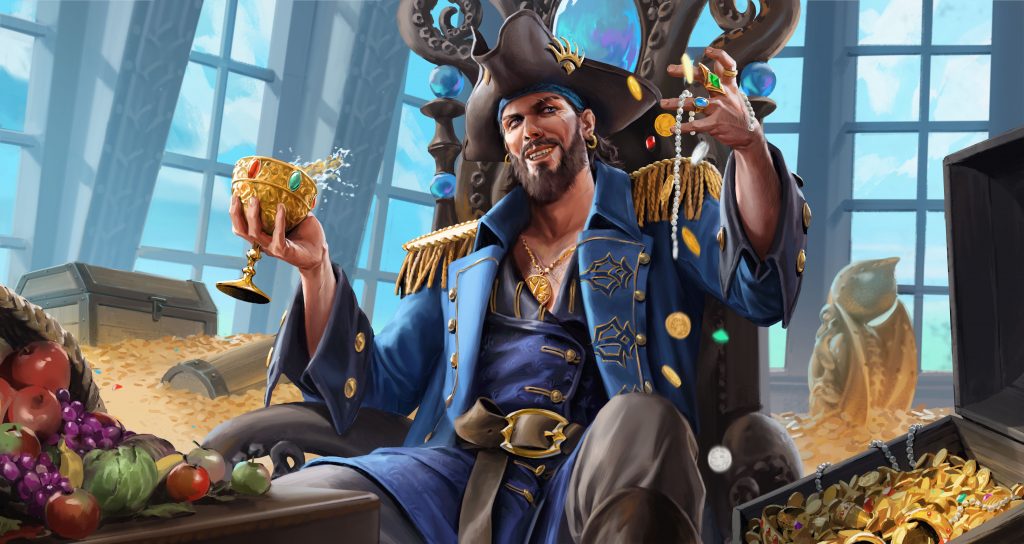House Kahnn - The Red Empire


“What follows is an amalgamation of collected tales, quotations, and descriptions, concerning the history of House Kahnn immediately preceding the dawn of The Second Ascendancy. Voices long ago silenced are here given life, extrapolated upon, and weaved together, with permission from—and in service of—our young Balance, that they might ascertain the full context of their duty to their conquered foes.”
A iX-Vii Lionhart —Delarkius, Master Archivist, Mayorie of Lore
Chronicle Installment CI#01:
The Young Kahnn
Summer in the valley plains meant sunbaked violence. The clan victorious pitched their tents downwind in celebration, while vultures scoured the battlefield. In a screaming sea of misery, they collected, leaving no glint of bronze, no arrow shaft behind that might be used kill again tomorrow. This picking was a job for children, sons and daughters. It had to be children, for warriors after battle took their seat beside the Kahnn at feast, and the people of the valley plains made no prisoners of their opposition.
“You,” said the Kahnn, pointing to a boy sat near the end of the feasting table.
The first Lord of House Kahnn was more of a brute than a Lord in the traditional sense. It was said that he stood taller than any man alive. And so we may presume that he sat in a similarly imperious manner, even as he ate.
He asked no question, but his pointing was plain. There was a boy, large for his age, sat not with the other vultures sorting weapons from gore, but at the feasting table, in plain view.
The boy gave no answer as battle-worn faces turned inward, glowering, accusing him. He growled, low and feral, and foolish—by most counts, under the scrutiny of his formidable clan Kahnn.
A few of the clan’s inner circle took exception to this insolence. They stood, demanding to know how the boy could dare to impose his presence in the company of warriors. The Kahnn himself did not stand. He ate, curious, watching the boy, who would not stir, nor speak a word in his own defense.

“Allay!” the Kahnn spoke at last, quieting them all. He let his voice hang in the wind for a moment before explaining, “I saw this boy. Today. On the battlefield. I saw him cleave a foe in half with that rusted scrap.” Meat in hand he nodded to a well-worn axe propped up beside the boy’s place. Old blood on its blade loaned truth to the claim, though it looked as dull as a dusted barrow.
At this the others leaned and weaved for a look at the axe, letting out stilted murmurs of confused approval. The boy stopped growling. He seemed satisfied, even proud, to be sat at the feasting table instead of with the other children.

“Here I must digress from today’s chronicle for a brief aside. As Master Archivist, it is my duty to the Balance of Lionhart to catalog histories for posterity. As your tutor, however, I am compelled to highlight a lesson. Our Ascendant Balance would do well to learn this lesson now, in the comfortable distance of story. This is a lesson that transcends House Kahnn, and history itself. This lesson: pride comes before a fall.”AiXVii Lionhart- Delarkius, Master Archivist
“…and,” The Kahnn continued, reclaiming the wind as he wiped the gristle from his lips, “I saw him cry. Cry he did. Dropped his axe. Wept. Like a child. Like mountainfolk.”
All the pride melted from the boy’s face like grease. Still he did not run, did not even turn red as he sat still and silent as death. The murmuring wind of the clan warriors around him turned to cacophonous laughter, fingers pointing, back slapping. Before long they were joined by more voices: the rest of the children, having left their sorting to investigate the commotion. Names were called. Whooping, cowardly animal impressions spun in the boy’s ears, until it seemed the entire clan had gathered around the Kahnn’s tent, howling and jeering. Indeed, only the boy—and the Kahnn—sat at either end of the feasting table, staring into each other’s eyes, quiet, a world removed from the rest. The Kahnn smiled. The boy did not.
Half a breath was all it took. The boy hefted his rusted axe, vaulted onto the table, and rushed forward.
As of this writing—reckoning AiXVii Lionhart—the Mayorie of the Master Archivist of Our Ascendant Balance is able to confirm with documented certainty that few of the warriors bearing witness at that feast managed to live to old age. Of those that did, fewer still lived their lives in such a way as to contribute to any records that have reached us today. What we do have are legends born of oral histories, or inscribed some time after the Second Ascendancy, a continent away. And from these records, minimal though they are, we know that none present at that feast made any excuses for their unreadiness. They did not justify their failed reflexes by citing the day’s battle, nor the laze of feast and drink. These were hardened warriors of the valley plains, of whom mothers used stories to frighten their children a hundred years after the young Kahnn set sail. Each of them that day, and all of them for their lifetimes after, could say only that they saw him in his prime: The Young Kahnn, Kojinn Kahnn, faster than the wind.
The boy brought his axe down at the edge of the table, between the Kahnn’s resting hands and into his meal. As it fell, he screamed, a thunderous—albeit adolescent—wail like a storm cracking young tree-limbs. The sound of his rage carried, the only sound across the plains, their camp, and the sea of quiet violence upwind.
The Kahnn did not try to avoid the blow. He wouldn’t have been able to if he had. He looked from the axe, firmly planted in his food, up at the boy, and waited patient as a father for his rage to settle into ragged breath.
When it finally did, the Kahnn spoke, gently.
“Boy,” he said. “I cried too. When it was my turn. I do still. Some days. It is… our way.” He laughed now, raising his hands carefully as he spoke, as if wary that the boy would lift his axe again.
The boy—Kojinn Kahnn—did lift his axe again, many times over the course of his life. The feast here recounted suffices in our history as a sort of coronation, in so far as House Kahnn in its early days nominated their gentry. The father, called “The Laughing Kahnn” thenceforth, took the boy in as a son, gave him his name, and raised him as a prince among his people. On those plains, that insolent boy grew into the raging storm that swept the shores of The Second Ascendancy, and played such an integral role in the Balance.
"Take me to more lore!" - You, right now
Astral magic is chaotic as a rule. For House Raspute, there is no rule that cannot be broken. They operate unconstrained by the boundaries of morality, the material plane, and even time itself.
As the native inhabitants of Ascendancy, this convocation of peaceful tribes watched in silence as their lands were despoiled. Now they fight back with root, fang, and claw.
Where other Houses enforce laws, House Roberts’ airships soar above them. Be they fortune-favored explorers, or illusion summoning scoundrels, depends on the sailor telling the tale.


